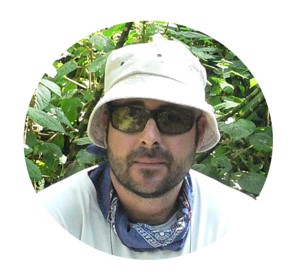
Alejandro Romero, Ph.D.
My research focuses on evolutionary and comparative dental morphology in mammals, including both non-human primates and humans. Using 2D and 3D morphometric analyses and topographic signatures, I investigate dental variation across species. Additionally, I explore the short- and long-term effects of diet on macro- and microscopic wear patterns to understand ecological and cultural adaptive behaviors.
ORCID: 0000-0002-5743-0613
Jordi Galbany, Ph.D.
My research centers on the dental ecology of living primates, aiming to identify the factors influencing tooth wear and microwear patterns in both well-documented and anonymous subjects. I also study growth and development in wild primates, as well as primate behavioral ecology, including mountain gorillas from Volcanoes National Park, Rwanda, and western chimpanzees from Dindefelo, Senegal.
ORCID: 0000-0001-6724-3451 / Website


Stéphanie Toriijo, Ph.D.
I apply 2D and 3D geometric morphometric techniques to explore the environmental and genetic factors influencing primate dental development and evolution. My research examines the morphological integration of tooth-row shape variability to uncover ecological and phylogenetic signals affecting modular organization.
ORCID: 0000-0002-4506-7829
Elisabeth Cuesta, Ph.D.
My research focuses on the dental and cranial morphology of primates, hominins, and modern human populations, investigating how these features reflect ecological adaptations. By analyzing morphological and anatomical variations, I seek to understand how environmental factors and diet have driven evolutionary change.
ORCID: 0000-0002-6904-8403


Yasmina Avià, Ph.D.
I study dental morphology as an ecological proxy, exploring its correlation with cranial and mandibular changes. My research focuses on the evolutionary history of extinct cercopithecines, particularly the Papionini tribe, as a comparative model for understanding the ecological context of Lower Pleistocene hominins.
ORCID: 0000-0002-6204-3327